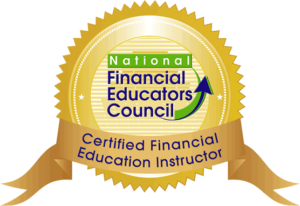Canada has increasingly become an attraction for immigrants and the number of young people migrating there continues to increase. While Canada offers a good opportunity for living well and having a good career, this opportunity can be misused if one gets into a financial trap.
Most immigrants will face new realities once they land. Preparing ahead and being properly informed will help you settle better and avoid financial pitfalls capable of derailing your financial journey. This article will focus on three areas to pay attention for managing your finances and staying financially fit in Canada. These are Tax filing and compliance, use of Credit cards /Credit scores and Mortgages.
Tax filing and compliance
This is one area all immigrants must focus on to avoid penalties and exposure to financial losses. The Canadian Tax system is very robust and has little or no room for Tax evasion. All immigrants are encouraged to educate themselves to ensure a proper plan for compliance. You are expected to file your tax Returns even if you did not earn money in a Tax year. The good news is that you can get free support from the Government on how to file your taxes.
Benefits of filing your Tax returns
There are many reasons to promptly submit your tax returns. One major reason is that the information from your tax return is used to calculate your benefit and credit payments. These benefits include Canada Child benefit, Canada Workers’ benefit, Child Disability Benefit, Northern Residents Deductions, GST/HST Credit and Disability Tax credit. It doesn’t matter if you did not earn income in the year under consideration. Information about your employment status and other relevant information on the Tax forms will assist the Canada Revenue Agency (CRA) work out your eligibility for these benefits.
Another reason is that Tax filing allows you get tax refunds where you have previously been overtaxed via ‘tax at source’. When you file your returns and claim your allowable deductions, your tax position may change, and you may be due to receive a refund via Tax credit. The CRA is the agency that administers the tax refunds as well as benefits.
Softwares you can use in filing your Tax returns.
There are free and paid softwares available for your use. Examples of some tax softwares that can be used to file your tax returns for free or for a small fee are SimpleTax , GenuTax, StudioTax and TurboTax. For SimpleTax and GenuTax, you can file your personal return for free regardless of complexity. You can choose to donate any amount of your choice after your taxes are filed. For, Turbo Tax free – If all you have is T4 slips (T4 slip is a summary of your employment earnings and deductions for the year) and charitable donations, you can complete your taxes for free. Otherwise, you have to pay per Tax return. To use Studio Tax, you can file the first 20 personal tax returns for free regardless of complexity, but unlimited returns will cost some money.

Four simple steps to follow in filing your Tax returns.
- Know your timeline
- Gather and organise your documents
- Choose a method of filing your tax return
- Know your deductions and credit
1 KNOW YOUR TIMELINE
It is important to be familiar with the deadlines to avoid paying penalties and interest on tax amounts owed. Most individuals have to file and pay all taxes owed for a year (e.g. 2020) by 30th April of the following year (e.g. 2021). Self-employed individuals have till June 15 of the following year (e.g. 2021) to file a tax return. Note however that all monies owed must still be paid by April 30 of each year to avoid penalties and interest. You can refer to the official website of IRCC (Immigration, Refugees and Citizenship Canada) for more details.
2 ORGANISE YOUR DOCUMENTS
For easy and seamless tax filing, it is important that you deliberately begin organising your documents for each tax year from the beginning of the year. Know which documents and receipts are important so you can ensure their safety. Begin to safely store the various tax documents and receipts as soon as you receive them. Whether you are an employee, business owner or Non-resident Landlord filing taxes for rental income, your receipts and documents are essential in filing factual tax returns. Note that as an employee, you will receive a T4 detailing your earnings and how much taxes were withheld; this must be kept safely. Business owners and Landlords need to have evidence of all expenses they intend to back out of gross earnings. Other documents include receipts for medical bills, charitable donations and other information that will support deductible expenses.
3. Determine a filing method –
Deciding how to file your tax return is an important step in completing your tax return. Most immigrants coming from underdeveloped and unstructured economies where Tax Filing is not effectively enforced need to adjust and be careful not to contravene the legal requirements of Tax filing. There are several ways to file or send in your tax return. You can choose to:
- Use a tax software
- Use a tax preparation service
- Complete a paper return.
Whichever method you choose, be sure to fully understand how it works and what is required of you. Paper forms and guides are available online from the CRA (Canadian Revenue Agency) website. These forms can however be difficult to follow and do not provide any help as to what deductions or credits you might be entitled to. Tax Preparation Softwares offer the option for online filing. These softwares guide you through the filing process and help you figure out the deductions and credits you could be eligible for. The use of a tax preparation service allows you access to one-on-one help and guidance from an expert. Be sure to choose a provider you trust. Note that the filing method you adopt will determine how quickly you get a tax refund. You can get your refund in 8 business days if you choose the direct deposit option and file online.
4. Deductions & Credits
Claiming the right deductions and credits is a great strategy to help reduce the amount of taxes you pay on your income. Take note of the following deductions and credits you may be eligible to receive.
- Child Care Expenses.
- Medical Expenses.
- Moving Expenses.
- Tuition credits
Note the need to keep all slips and receipts as all claims must be supported by the right documents.
Use of Credit Cards and building your credit score
Efficient management of your credit cards is critical to your financial survival especially in an economy like Canada that depends so much on credit. Unlike the occurrence in the home countries of some immigrants where transactions are mostly cash based, Canada offers easy access to credit cards.
Investopedia defines a Credit Card as ‘a thin rectangular piece of plastic or metal issued by a bank or financial services company, that allows cardholders to borrow funds with which to pay for goods and services with merchants that accept cards for payment. Credit cards impose the condition that cardholders pay back the borrowed money, plus any applicable interest, as well as any additional agreed-upon charges, either in full by the billing date or over time’.
Credit cards give you access to convenient and easy borrowing which when not carefully managed can tie down the user into indebtedness that continues to grow.
Owning a credit card is not luxury as there are some vendors that require payment by credit card only. While you may want to avoid the danger of getting entangled in credit card debts, you may need to have one to make seamless payments in some circumstances. What is important is that you determine from the start that you will be in complete control of your credit cards and not the other way round.

There is no free lunch. Credit cards give cash or funds advance which MUST be repaid. You repay on time and within the terms of the facility granted and you remain financially fit. Once you default, your woes begin…… Let’s discuss some key things to cautiously bear in mind before you commence the use of credit cards.
DETERMINE HOW YOU WILL USE THE CARD– Start by deciding ahead what you will you use the card for. Will you restrict usage to your daily purchases, large purchases, online transactions, or others? It is important that you match your needs to the right credit card with the features, rates and options that work for you.
DO YOUR RESEARCH – What features are important to you? Different cards offer different features. You should choose your card based on what you hope to achieve by using the card.
• Low or no annual fees
• Cash back program
• Rewards programme
• Extended warranties on purchases
READ THE FINE PRINT – Research, understand and note the conditions and hidden details of credit card offers. Compare these details on the different options and select the cheapest and most convenient option. Details to watch include following
• Credit limit
• Annual fee
• Minimum payment amount and date
• Additional fees and penalties
Mortgages in Canada: What you need to know
Once you land in Canada, put a plan in place towards owning your own house. Be aware that the monthly rent you pay to a landlord can be applied as mortgage payment towards owning your own property. Having a plan will help you make choices that will guide you to actualize your dream on time. Your plan should include target date, house type and size, desired location, and a budget for this. Taking a mortgage loan is one example where debt is not discouraged. This borrowing helps you acquire an asset that increases in value.

As a newly landed immigrant, buying your first home is supported by certain government initiatives which you need to be aware of. Be informed of the Canadian government’s ‘First-Time Home Buyer Incentive’ aimed at improving affordability for first-time home buyers. The programme offers 5 or 10% of the home’s purchase price to put toward a down payment. Visit the Government official website to check your eligibility and for full details. Know also that depending on the province, you may be eligible for some Tax rebates or interest free loans.
Preparing for your Mortgage: Here are some basic things to consider before you apply for your mortgage.
- Make sure your taxes for previous years are filed
- Make sure your credit scores are okay – you can use free services online. Credit Karma and Equifax are good examples.
- Ensure you have your down payment ready
- Use an experienced Realtor
- Choice of Mortgage Agent – Be careful to keep mortgage broking costs low. Ask questions and don’t rush this decision.
- Aim to get the least possible Mortgage Interest rate. – Rates will differ for variable and fixed term mortgages. Research to ensure you are well informed on the benefits and consequences of both options.
- Be careful to understand the terms of your mortgage especially concerning flexibility of repayment options and the penalties for breaking the mortgage. Note that if you need to refinance your mortgage or sell the house during the term of the mortgage, these are often seen as breaking the mortgage and will usually attract penalties.
- Explore available offers. The various banks have different packages for first home buyers.

DISCLAIMER: This article has been written in good faith to guide and assist newly landed immigrants achieve financial fitness early in their new location. Details shared are purely from practical experience and personal knowledge. Readers should undertake further research and visit the CRA and IRCC official websites for more details and official position on all issues. The Writer accepts no liability for the contents of this article.
CREDITS: This article was written from inspiration received from a Canada based Finance Coach (Instagram @MoneyRedefined). Her page is dedicated to helping immigrant families build a healthy relationship with Money. Follow her page for more tutorials on managing your money as a Canadian resident.
***Bimbo Komolafe FCA, FCIB writes from Lagos and is a Fellow of the Institute of Chartered Accountants of Nigeria and a Fellow of the Chartered Institute of Bankers. She teaches financial literacy across FinanceCoachBK platforms. Follow her handles for daily tips to help you achieve financial freedom and grow your wealth.
Instagram: @Financecoachtoday Twitter: @FinanceCoachBK


